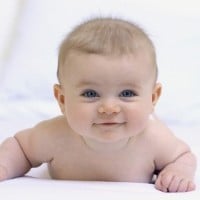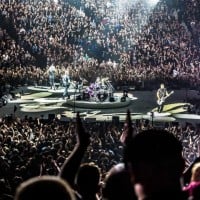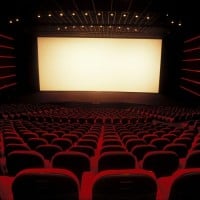Top 10 Things That Cause Hearing Loss
There are things known to damage our ears leading to hearing loss. Hearing loss is serious, yet can be irreversible & ruin many things in life. Including many things on Earth. Sound is a pressure wave & sound pressure is measured as sound pressure levels (SPL) in decibels (dB). Decibels have filters since we perceive them differently not only with levels but also frequencies which’s why filters such as the A, B & C weighting scales are used. The A weighting filter is the most commonly used as it acts the most like our ears. The I is for impulse which means sudden & brief sounds.Asteroids & comets can sometimes hit us & some are larger than Everest & hit us with such force that aside from all the destructive danger they pose (such as mega tsunamis, firestorms, mega volcanoes and dust-induced ice ages) they would also affect the atmosphere which means extreme shock waves & even on the other side of Earth (if you survived during them) you would get more than major hearing loss or ruptured eardrums. Yet some sounds are enough to permanently deafen you & rupture your eardrums. An impact like what killed off the dinosaurs was more than enough to wipe out your hearing, it wiped out nearly all life on Earth according to scientists. Yet even the fragment over Chelyabinsk Russia on February 15th 2013 blew up with 200 kilotons which meant 255 dB from the source & 180 dB from the ground which was enough to damage 7,200 buildings & injure 1,491 people. Thankfully nobody was killed though people got severe burns, cuts & of course permanent & total hearing damage.
Bombs were made for defense & known to be powerful as atomic bonds split. The Hiroshima bomb was said to be powerful enough to not only damage hearing 24 miles away but also destroy the city of Hiroshima in just seconds. All 300K people were killed. Yet the largest bomb of all (Tsar Bomba or King of the Bombs from Russia) was 50 MT (megatons) which indicated 282 dB from the epicenter of the blast, which formed a shock wave that circled Earth.
That would be so loud to have a bomb blow up right beside you it would probably become deaf
Earthquakes are known to deliver more force than any bomb ever detonated & based on scientific measurements, a 5 on the Richter scale measures 235.16 dB at the epicenter & 8.7 was like 296 dB which's enough to move our ground up & down by ~13'. A magnitude of 9+ will flatten cities (as did to Tohoku Japan on March 19th 2011). It takes at least 85 dB to cause hearing loss at any point. Though deaths from earthquakes are usually from damaged buildings & tsunamis.
Earthquakes would be scary I would hate to lose my hearing to earthquakes
They use hundreds of thousands of lbs of thrust to fly into the air. In fact a regular commercial plane is 140 dB at 32 meters & the airport marshalls deal with unbearable noise even at such distance with strong hearing protection. They're much louder when closer as anything making noise sounds louder the closer you are. A jet engine measured 164 dB on the inside.
I remember my ears getting popped from the pressure of the plane and getting hearing loss. I think that's more common than getting hearing loss from the noise itself.
Volcanoes are known to form from tectonic activity & some eruptions are so powerful that they damage cities. For example, on August 27th, 1883, Krakatoa (in Indonesia) erupted with such powerful explosions that they were heard ~3,100 miles away & Perth in Australia was within that radius & people there mistook it for gunfire. Yet 165 km away barometers measured it to be 172 dBI (which was more than enough to shatter glass & obviously cause hearing loss to anybody yet indicates 310 dBI at its epicenter) & those 46 km away had their eardrums ruptured by the blasts. In addition the eruptions created a ~130' tsunami that was the main cause of its death toll which was at least 36,417 human lives. Yet shock waves echoed around Earth 4 times for nearly a week. Yet Mt. St. Helens blew up on May 18th, 1980 & destroyed 200 homes along with 47 bridges & 15 miles of railways yet windows of buildings 200 miles away were blown out (indicating 163 dBI from there & 286 dBI from the epicenter). 57 people were killed. All that made it the deadliest & most economically destructive volcanic eruption in modern U.S. history. Now if all that wasn't enough, if supervolcanoes like Yellowstone erupted, nearly everyone in the U.S. would be deaf, yet the climate would be altered worldwide & over 5B people would die, putting us close to extinction.
Alarms help alert people of danger (whether by smoke, fire or burglary). That means sounds that would damage your hearing & some alarms put out frequencies our ears are sensitive to. A common home smoke detector puts out 85 dBA at 1 meter, a public fire alarm puts out 95 dBA at 1 meter (at 2 kHz) & some alarms are sold with 125 or more dBA which would certainly damage your hearing almost instantly. Alarms are made for safety but hearing loss isn't safe.
I have anxiety that the fire alarm is going to go off at night and startle me awake.

Whales make sounds or communicate & defend yet thankfully they're underwater (which absorbs sound) as they're known to clock in at ridiculously high dB ratings of any scale that would deafen you. The blue whale was 188 dBI & the sperm whale makes clicking sounds at a whopping 230 dBI.

Pistol shrimps use their claws to break the sound barrier by closing their claws & create cavitation air bubbles. They collapse faster than sound making sonic booms registering 218 dBI, which's not only enough to deafen you but also kill you. They kill others for defense.
I can only describe this in one word: terrifying.
Balloons pop with such loud sounds that scare not only children but adults alike. Yet how loud they pop depends on the type & how they're popped. A typical 9" balloon pops at 151 dBI from puncturing, 157 dBI from compression & 168 dBI from over inflation, all meaning balloons are among the most common causes of hearing loss. Yet games that involve popping balloons are extremely dangerous for your hearing after all. Too bad they violated the O.S.H.A. CDC & W.A.T.C.H. (World Against Toys Causing Harm) noise safety laws. 140 dBA/dBI or greater will do so permanently in just 90 milliseconds which's super quick & balloons pop more quickly but much more loudly as well.

Babies are known to cry a lot & with loud dBA ratings of 110 dBA though the voice travels away from their ears but the mother's at the most risk of hearing loss which kicks in at just 1 minute.

They're known to put out decibels loud enough to damage your hearing shortly. A symphony orchestra can put out 100+ dBA depending on type & music & rock concerts are even louder, registering 108 to 114 dBA on average from the front row seats. Some rock concerts were said to put out 120 dBA or more from such seats. KISS 1 time performed at 136 dBA which caused noise complaints & the WHO put out 126 dBA 32 meters away from the stage during 1 of their gigs (which indicated 156 dBA at the front row). Remember it doesn't take long to lose your hearing at most concerts as 100 dBA will damage your hearing in just 15 minutes, 110 dBA will damage your hearing in just 1.5 minutes, 114 dBA will damage it in less than half a minute, 120 dBA will damage it in no more than 9 seconds. Now who would even think about BTS concerts? As you know it takes at least 120 dBA to put you in pain at a low frequency but as low as 107 dBA to cause pain at the most sensitive frequency (which's 2,750 Hz or 2.75 kHz). Talk about hearing loss for the audience & the artists/bands. Yet concerts from many of today's solo pop artists like Justin Bieber, Taylor Swift or Shawn Mendes for example are no exceptions either. Plus many such ear plugs block out 20 dBA which means in a 120 dBA venue you're still exposed to 100 dBA which damages hearing in just 15 minutes & concerts last for hours & such "protection" blocks more of the higher frequencies rather than the bass where most of the decibels come from, meaning hearing loss is still inevitable. You can't hear anything else besides the venues & your heart will go out of control. Big live venues can put out dangerous dBA levels for anyone's hearing.
Rockets are known to be loud as the enough energy's required to lift them off. Yet space rockets are especially off the charts when it comes to machinery as they can pull off 200+ dBA. In fact the Saturn V test engine pulled off 204 dBA when NASA measured it. They're so loud they can engulf anything & anyone miles away with their indescribable power & ceiling tiles in the press room fell when the Saturn V lifted off with Apollo 4. Thankfully nobody was killed but it sure cost the locals their hearing & regular heart rates.
Gunshots vary depending on type of gun, but they usually put off 133 dBI at 1 meter & some like a 12 gauge shotgun out off 164 dBI & some even 170 or 180+. Yet those hunting or practicing targets routinely fire their guns, damaging each bit of their hearing they have left.
Guns are too loud they always scare me I wouldn't want to go deaf
They're used almost all the time & they usually measure 110 dBA 1 meter away. If you're someone who regularly cuts down limbs with a chainsaw then you're very prone to hearing loss without any protection. Hearing damage kicks in at just 1 minute.
Factories are known for noisy machinery putting out dB levels loud enough to damage hearing over time & people work there every day which damages hearing. Yet a steel mill puts out 110 dBA which damages hearing in 1 minute & oxygen torches are 121 dBA which damage hearing in just seconds.

Fireworks are explosives which are loud & they usually put out 165 to 170 dBA. What you see at firework shows are usually displayed at a distance for safety (including prevention of burns) but still pack a punch & the grand finales could knock the wind out of you. At Epcot at Walt Disney World, the finale on New Year's Day was said to be heard 4 miles away & was enough to wake up the animals at Animal Kingdom. Safety is important even for children & children were at Epcot & hearing loss is a safety hazard even Disney fears. Some of the shows in Dubai & Japan were shows where h e double hockey sticks broke loose though even the biggest of fireworks to celebrate with don't hold a candle to space rockets along with especially atomic or nuclear bombs (which destroy cities).
Vehicles such as police cars, fire trucks & ambulances have sirens capable of putting out 120 dBA just meters away which almost suddenly damages your hearing. Therefore passing by 1 in really close proximity costs drivers their hearing. Thankfully the sirens help alert them of anyone in danger or injury.
They're known to be loud enough for anyone at any seat to get hearing damage in just seconds. Plus a formula 1 puts out 162 dBA meters away. They can be heard for many miles. Not to be mentioned they're 135 dBA on the inside which the drivers are exposed to, making racing 1 of the most dangerous jobs for hearing as well as other things.
They're typically known to put out 95 dBA 2.5 meters away & 102 dBA at less than 1 meter distance. Some are louder though & others are quieter. Yet motorcycle drivers are typically exposed to ~110 dBA when riding at 90 mph with their helmets on as the engine & wind, meaning they'll get their hearing damaged in just a minute & a half.

Movies are meant to give guests a fun time with entertainment, but even regular theaters are known to have dB levels that cause hearing damage. A regular theater is 75 to 85 dBA during a movie but thank goodness the movies aren't even 8 hours at most times as that's how long it takes for anyone to lose their hearing at that level. Now IMAX movies are much louder & lead to hearing damage in just minutes though they still don't do justice for giving guests the most immersive experience of recreating explosions as those would not only damage your ears but also kill you.
Some speakers like loudspeakers at concerts & movie theaters are dangerously loud. Yet some cdd sets have built-in stereo speakers capable of producing deafening sounds. The loudest was 181.6 dBA. Thankfully nobody was allowed inside the cars as those would not only damage the hair cells in your ears, but the tissue, leading to eardrum rupture.
They're known to emit 88 dB up close which'll damage your hearing in just 4 hours.
Many sporting events take place either at gyms or stadiums & they can be anywhere from 100 to 105 dBA at gymnasiums though at some stadiums they can exceed that which means hearing damage in much less time. An average football game peaks at 117 dBA which's enough to damage your hearing in 18 seconds. Now remember the crowd at the Kansas Arrowheads stadium on September 29th 2014 was 142.2 dBA which was enough to damage hearing in ~66 milliseconds.
Nightclubs are said to be fun but loud enough to damage hearing & they can put off 100+ dBA & some are even louder. Everyone wants to have fun but fun doesn't come without safety. 100 dBA damages hearing in just 15 minutes & at a club people don't realize that until it's too late.
Known for blasting sand off & giving products a certain finish, the machinery used for such is loud enough to damage hearing in less than a minute, meaning hearing loss comes before your 1st minute is up. They're 115 dBA at 1 meter, which damages hearing in 28.8 seconds.